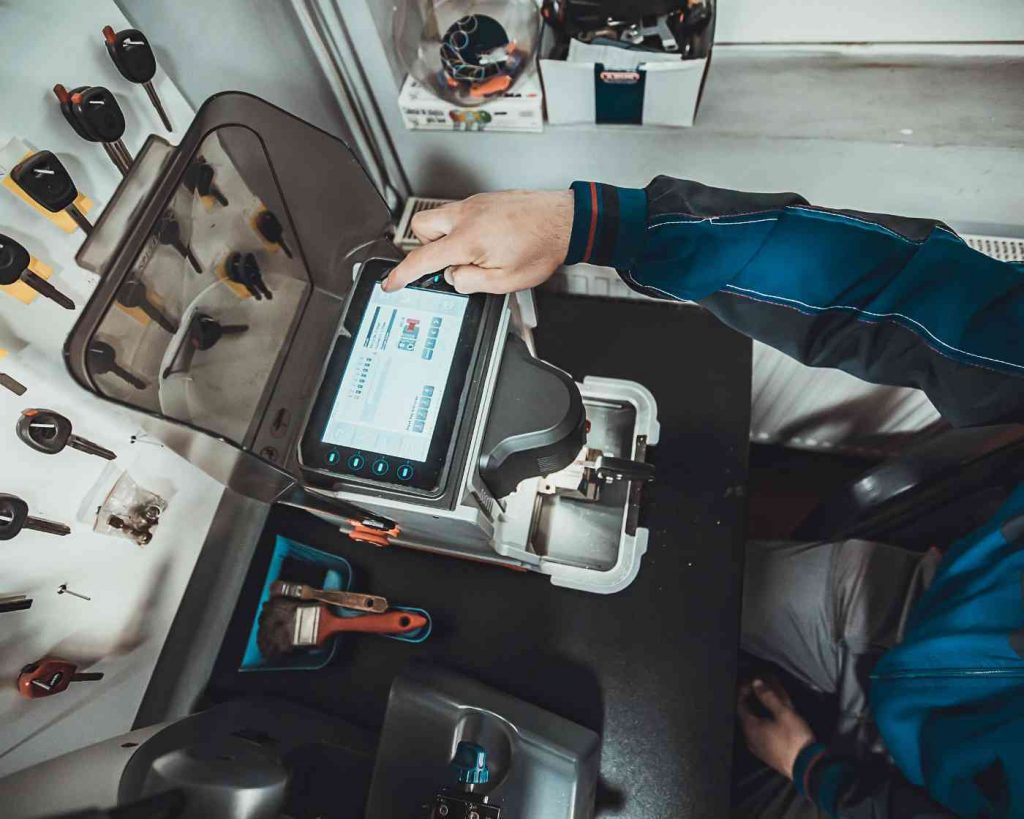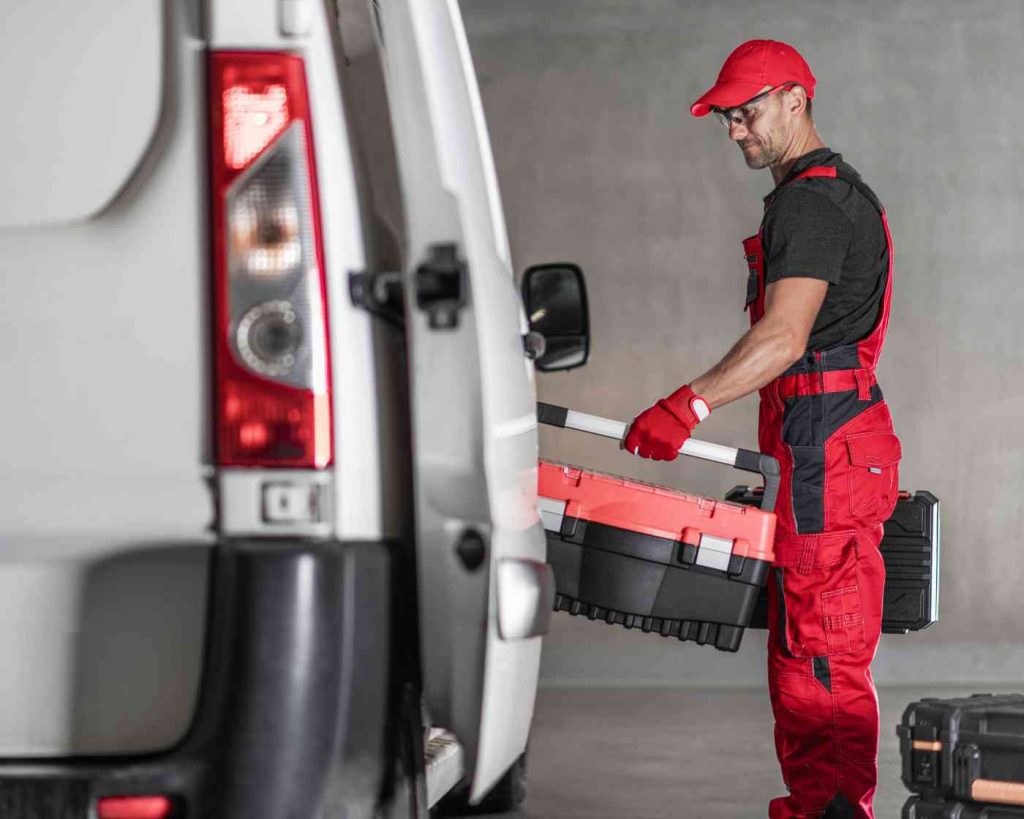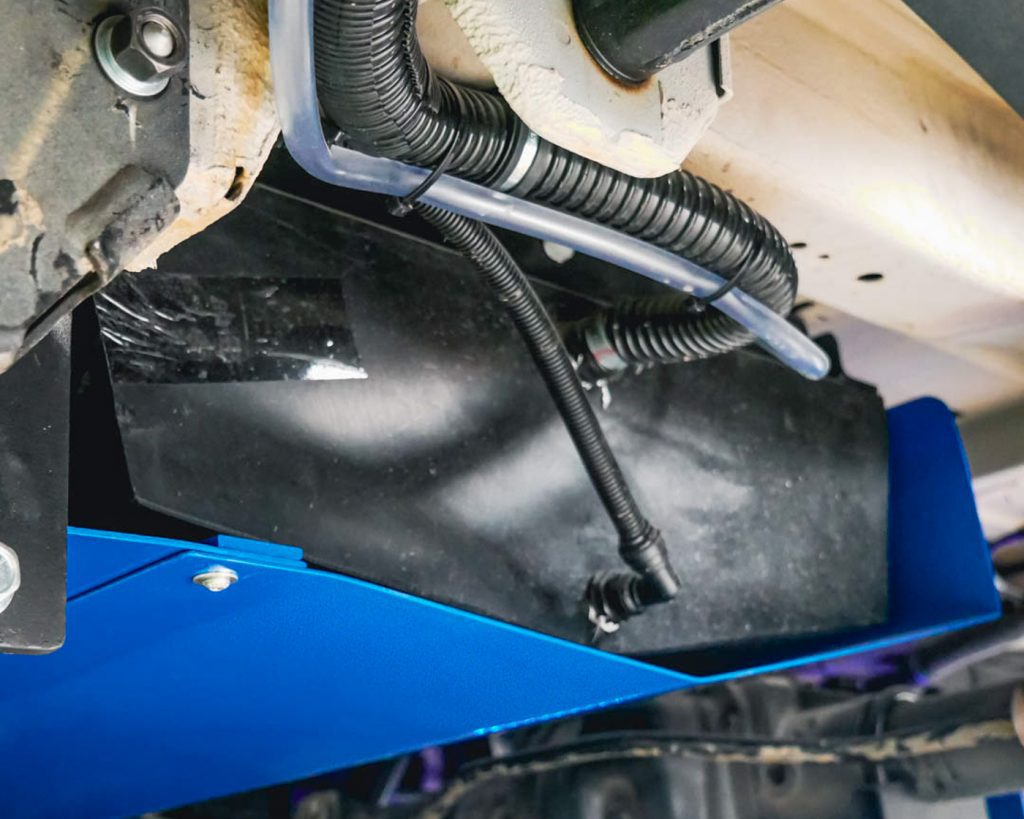In the expansive landscapes of Australia, tradespeople are taking their skills on the road. By converting a van, truck, or trailer into a mobile workshop, they can deliver their services directly to their clients. Whether you’re a locksmith, carpenter, electrician, or plumber, a mobile workshop could revolutionise your business. This article will guide you through setting up your mobile workshop.
Locksmiths
For locksmiths, a mobile workshop needs a workbench, storage for various locks, keys, and tools, and a key-cutting machine. A power inverter will provide electricity for the critical machine and other electrical tools. Don’t forget a comfortable chair for those intricate lock mechanisms!

Carpenters and Wood Carvers
Carpenters and wood carvers require ample storage for wood, hand tools, power tools, and finished pieces. A sturdy workbench with a vice is essential, as is good lighting. Consider how you’ll manage sawdust – perhaps with a portable dust extractor.
Electricians
Electricians will need storage for various tools, wires, switches, and other components. A well-lit workspace is crucial for detailed electrical work. You might also need a test bench for diagnosing electrical issues.
Plumbers
A plumber’s mobile workshop should include storage for pipes, fittings, fixtures, and tools. A pipe rack can keep pipes organised and easy to access. A small sink with running water could help test and clean parts.
Painters
Painters would benefit from storage for paints, brushes, rollers, and drop cloths. A sink for washing brushes and a drying rack for cleaning tools would be a great addition.
Mechanics
For mobile mechanics, a tool chest and storage for parts and fluids are necessary. A portable lift or jack could help work underneath vehicles. And remember good lighting for those hard-to-see engine parts.
Tool Storage and Charging
Regardless of your trade, efficient tool storage is crucial. Consider pull-out drawers, bins, and racks to keep everything organised and easy to find. For power tools, you’ll need a charging station. Solar panels on the roof of your vehicle can provide sustainable power.
On-Board Facilities
You should include some comforts depending on how much time you’ll spend in your mobile workshop. A small toilet, perhaps a composting one, can be an excellent addition for those remote jobs. A sink with running water is beneficial for cleaning tools and making a cup of tea on your break!

Professional Conversion vs DIY: Why Going Pro is Worth It
Transforming an RV into a mobile workshop is a significant project that can benefit tradespeople who are always on the move. However, choosing between a professional conversion and a DIY approach can substantially affect the outcome. When you opt for a professional conversion, you invest in the expertise and precision of years of experience in custom vehicle modifications.
A professional outfit will ensure that every inch of space is utilised efficiently, which is vital when trying to fit the necessities of your trade into a compact mobile workshop. This optimal use of space can save you time during your daily tasks, as tools and equipment will be strategically placed for easy access and workflow efficiency.
Not to mention, a professionally converted vehicle is likely to adhere to a higher safety standard and compliance with regulations. This is particularly important when dealing with intricate systems like electrical wiring or gas plumbing.
Additionally, while a DIY conversion might save money upfront, the time investment required to learn, design, plan, and build the setup is substantial. That’s time away from your actual trade, potentially costing you income. Moreover, any inaccuracies or mistakes during a DIY project may result in further investments to correct issues or improve functionality. In contrast, a professional service often comes with warranties and aftercare support, offering peace of mind and long-term cost-effectiveness.
By choosing a professional conversion, you also benefit from professional design’s aesthetic and practical aspects. This can be instrumental in branding your mobile workshop, making it an extension of your business identity that stands out to customers. In a professional conversion, everything from the colours to the materials can be chosen to reflect the quality and professionalism of your services.
Ultimately, while the DIY path might be tempting for the hands-on tradesperson, the time savings, quality assurance, and added professionalism that come with an expert conversion should be considered. Investing in a professional conversion is investing in the efficiency and longevity of your mobile business.
In Conclusion
A mobile workshop lets you take your trade directly to your clients, offering convenience and flexibility. With careful planning and design, you can create a workspace that’s just as effective as a traditional workshop, if not more so. So why not hit the road with your skills?



